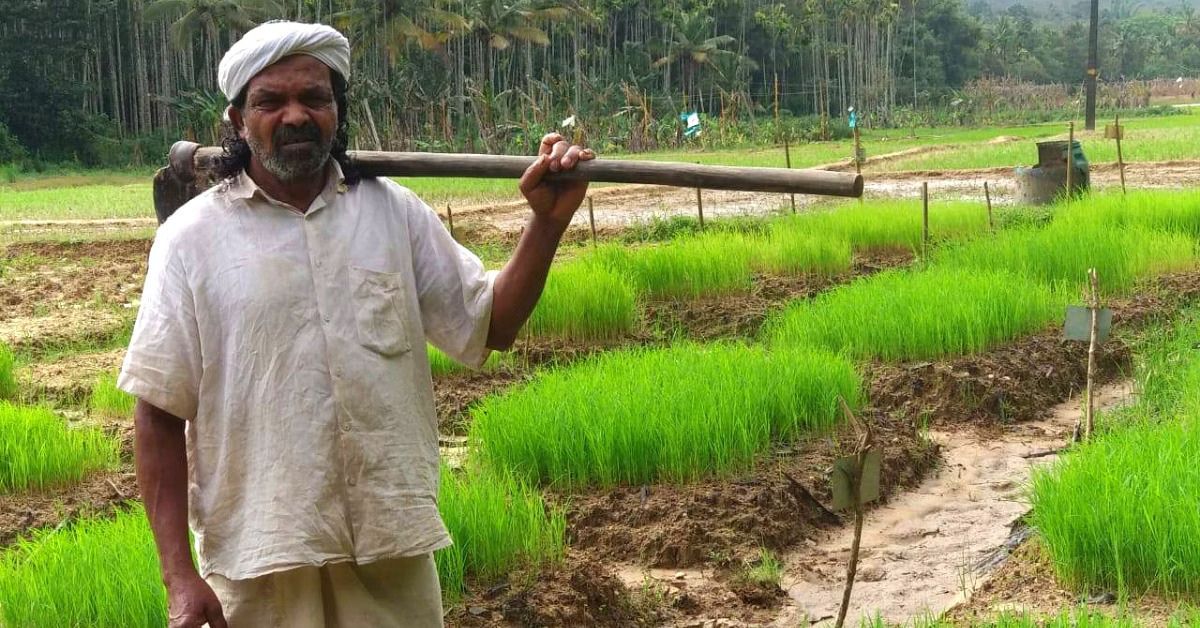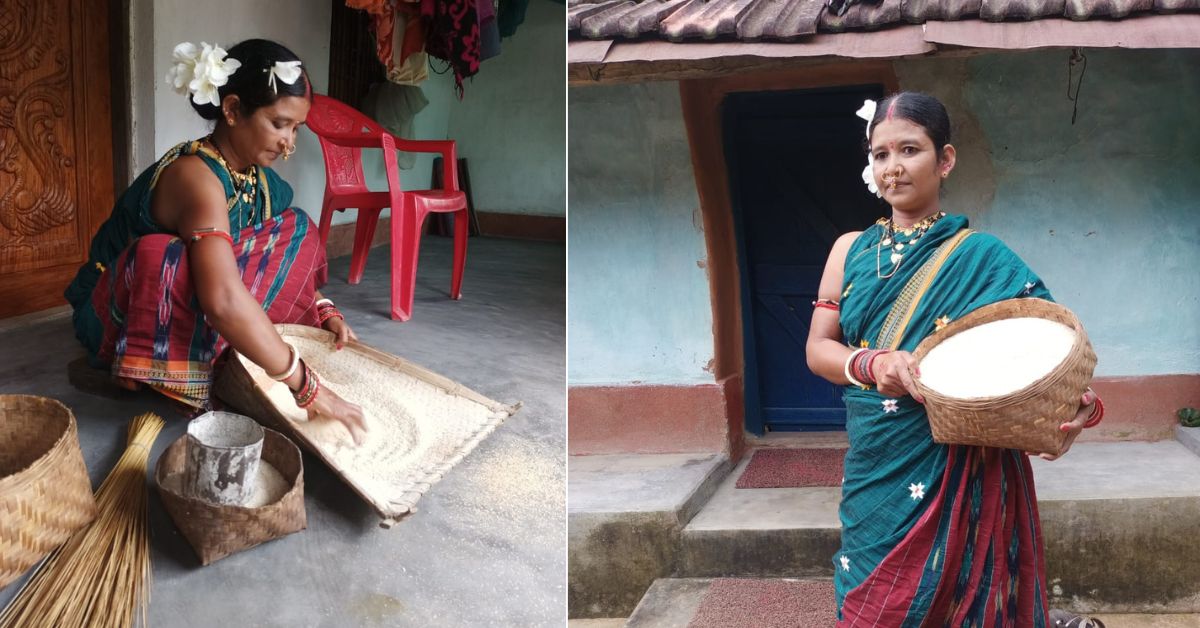Nominees Announced! Meet the 5 Farming Heroes Powering India’s Agri Transformation
Individuals across the country are rising to meet the challenges around them with courage, compassion, and determination. They push forward — not because it’s easy, but because it matters. In doing so, they leave a lasting impact.
In the ‘TBI Agri Changemakers’ space, this spirit comes alive in many ways — through fresh innovations, thoughtful revival of traditional practices, and everyday efforts. Each changemaker is crafting real solutions for real people.
As part of Optum Presents The Better India Showcase, supported by the M3M Foundation, we’re highlighting the work of five individuals in the TBI Agri Changemakers category whose work is changing the way we think, act, and care.
1. Cheruvayal Raman, Kerala
In Wayanad’s misty hills, where hybrid seeds began replacing native grains, Cheruvayal Raman stood his ground. A Kurichiya tribal farmer, he chose the difficult path: reviving and preserving 54 indigenous rice varieties through traditional organic methods. Every year, he distributes seeds to 250 farmers under a “seed return” model, ensuring the community cultivates and conserves heritage rice.
 Cheruvayal Raman has spent almost all his life cultivating paddy through organic practices.
Cheruvayal Raman has spent almost all his life cultivating paddy through organic practices.
Over two decades, more than 5,000 farmers across Kerala have joined this quiet revolution. His ancestral fields, now a living gene bank, draw researchers, students, and fellow farmers from across India. For his tireless work, he was awarded the Padma Shri in 2023, and earned a reputation as India’s “guardian of native paddy.”
2. Dr Manoj Kumar, Bihar
Where others saw waterlogged land, Dr Manoj saw possibility. In Bihar’s wetland districts, he spent over a decade developing Swarna Vaidehi, India’s first flood-resistant makhana variety. This allowed farmers to cultivate in shallow waters, making the risky, traditional practice safer, more sustainable, and far more profitable.
Farmers now earn over five lakh rupees per season from makhana, and thousands across India have adopted his model. By reducing dependency on deep ponds and promoting water-efficient practices, Dr Manoj is helping future-proof farming. Through ICAR, his innovations have spread beyond Bihar, and his name is now synonymous with the revival of India’s favourite superfood.
3. Umendra Dutt, Punjab
In Punjab — the cradle of India’s Green Revolution — Umendra Dutt planted a different kind of seed. In 2005, he launched Kheti Virasat Mission (KVM), urging farmers to abandon chemical-heavy methods and embrace organic, traditional farming rooted in biodiversity and self-reliance.
He faced resistance. But year by year, field by field, change took root. Today, over 30,000 farmers have transitioned to organic agriculture, growing millets, pulses, and vegetables while reviving groundwater and soil health. KVM runs seed banks, training centres, and input-free farming workshops. Its success has turned Umendra into a pioneer of “People’s Agroecology”, a grassroots alternative to industrial farming.
4. Raimati Ghuria, Odisha
In Koraput’s drought-prone hills, tribal farmer Raimati, with only a Class 7 education, is preserving something priceless: India’s food heritage. For over 30 years, she has conserved 30 rare millet varieties and 72 traditional rice strains, using a mix of indigenous wisdom and scientific methods.
 Raimati has preserved 72 traditional paddy varieties and at least 30 varieties of millets.
Raimati has preserved 72 traditional paddy varieties and at least 30 varieties of millets.
Since 2000, she has trained 2,500 farmers, especially women, in millet cultivation, seed saving, and value addition. Her women-led groups sell millet snacks like laddus and pakoras, creating local income streams and nutrition.
Raimati now leads a farm school and farmer producer company, her work recognised nationally, even earning her a place at the G20 Summit.
5. Abhishek Kumar, Bihar
In 2011, Abhishek left his corporate banking job to return to his ancestral land in Bihar. Focussing on medicinal and aromatic plants like tulsi, moringa, and lemongrass, he introduced modern techniques such as polyhouse farming and foliar nutrition.
Over 14 years, he has mentored two lakh farmers across the country, helping them boost incomes through crop diversification and direct market access. Working with over 95 farmer producer organisations (FPOs), he champions low-input, water-efficient crops and solar processing. As founder of Aurangabad Kadambini FPC and a leader at Kissanpro, his model is now empowering farmers nationwide.
Change doesn’t always start with fame or authority. It often begins with one person choosing to act — and staying committed. These changemakers show us that real progress comes through action, not hesitation.
The Showcase may be a single event, but the stories don’t end there.
Every winner (and several nominees) will be continuously featured across The Better India platforms through:
- Video documentaries
- In-depth written stories
- Short reels and social content
We believe that the true power of recognition lies in what comes after the applause. So expect these stories to stay with you long after September, throughout the year.
Optum Presents The Better India Showcase, supported by the M3M Foundation, goes live on 18 September 2025. Meet the nominees, dive into their inspiring stories, and follow their journey of impact — all in one place. Click here to explore.
News